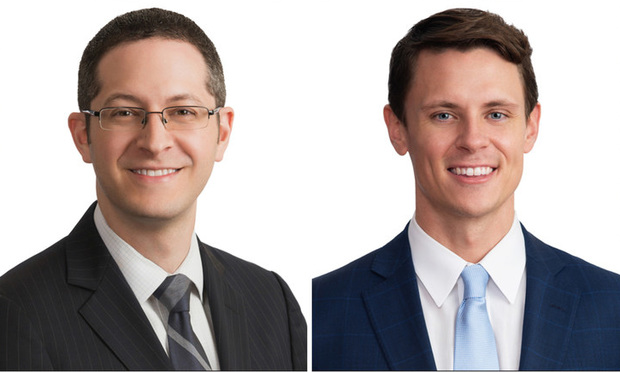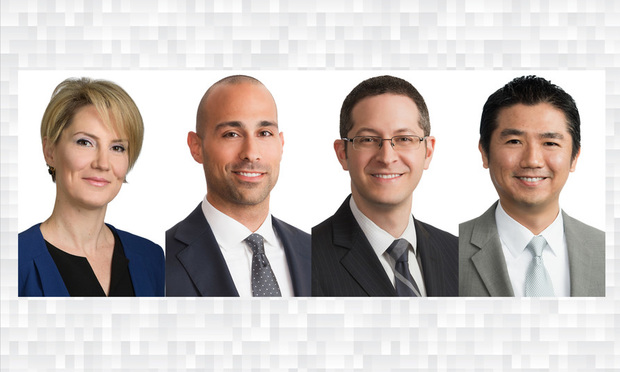Jeffrey N Rosenthal

June 10, 2019 | Legaltech News
Lessons from Rivera: What One Case Reveals About Federal Biometric LitigationRivera v. Google offers key insight into the federal standing threshold for BIPA claims, and provides litigants a vital defense strategy for fighting back against, and defeating, BIPA actions in federal court.
By Ana Tagvoryan, Jeffrey N. Rosenthal and David J. Oberly, Blank Rome
8 minute read

May 16, 2019 | The Legal Intelligencer
Companies Beware—Social Media Influencers Are Becoming Enforcement TargetsInfluencers have also come under increased scrutiny by federal agencies, with the Federal Trade Commission (FTC) settling its first-ever complaint against influencers in 2017. This reaction has far-reaching implications for what is considered deceptive or misleading marketing and could expose companies utilizing such marketing tactics to federal lawsuits.
By Jeffrey N. Rosenthal, Jed M. Silversmith and Caroline S. Choi
9 minute read

March 01, 2019 | The Legal Intelligencer
Biometrics and the New Wave of Class Action LawsuitsWith the passing of BIPA in 2008, Illinois became the first state to regulate the collection and storing of biometrics information.
By Jeffrey N. Rosenthal and Thomas F. Brier Jr.
6 minute read

November 02, 2018 | The Legal Intelligencer
Can the Law Keep Up With the Internet of Things?In 1999, renowned inventor and self-described futurist Ray Kurzweil—now director of engineering at Google—published "The Age of Spiritual Machines," in which he proposed a formula for calculating the rate of change in evolutionary systems.
By Jeffrey N. Rosenthal and Thomas F. Brier Jr.
7 minute read

July 30, 2018 | The Legal Intelligencer
How Video Game Mods Are Changing the Intellectual Property GameA year ago, the word “fortnight” was relegated to relative obscurity—an archaic way of saying two weeks. In July 2017, however, all that changed. After software developer Epic Games released the blockbuster video game Fortnite Battle Royale—a multi-platform, free-to-play game in which players participate in a cartoonish fight for survival in a post-apocalyptic world—the word "Fortnite" can now be heard everywhere.
By Jeffrey N. Rosenthal and Ethan M. Simon
1 minute read

July 23, 2018 | The Legal Intelligencer
Courts Dial Back Autodialer Definition Following 'ACA International'The TCPA was passed to strike a balance between protecting the privacy of individuals, while still permitting legitimate telemarketing practices. In modern times, however, the TCPA has been expanded well beyond its intended purpose and scope.
By Ana Tagvoryan, Jeffrey N. Rosenthal, Alen H. Hsu and Matthew P. Rubba
1 minute read

April 25, 2017 | The Legal Intelligencer
Property Owners Continue to Say 'No' to Pokémon GOPokémon GO—the latest iteration of the immensely popular Pokémon media franchise, best known for producing a series of video games in which players act as "trainers" with the goal of capturing and collecting fantasy creatures called Pokémon—has continued to sweep the nation. Downloaded over 650 million times, this revolutionary mobile app relies on various smartphone technologies—including GPS, camera and gyroscope features—to create an "augmented reality" gaming experience in which players locate and capture virtual Pokémon by exploring their physical surroundings.
By Jeffrey N. Rosenthal
13 minute read

May 10, 2016 | The Legal Intelligencer
Should Lawyers Refrain From 'Scouring' Jurors' Social Media?One might expect a high-profile copyright infringement action between two of the world's largest tech companies—with $8.8 billion in potential damages at stake—would involve cutting-edge technological issues and industry-wide implications. And since its inception in August 2010, Oracle America v. Google—currently before U.S. District Judge William Alsup of the Northern District of California—has left all those involved anxiously awaiting a decision on whether Google's use of Oracle's copyrighted Java code in its Android OS, used by over 300 million mobile devices, was allowed by the fair use doctrine.
By Jeffrey N. Rosenthal
7 minute read

January 26, 2016 | The Legal Intelligencer
Uncertainty Reigns Over Ownership of Social Media ContentWhen a social media account is created, who owns the resultant content? When a business cultivates Facebook "likes" in order to expand its marketing reach and effectiveness, who controls the outpouring of support for the company?
By Jeffrey N. Rosenthal and Harrison M. Brown
7 minute read

July 28, 2015 | The Legal Intelligencer
TCPA Ruling a Boon for Plaintiffs, Bust for Businesses and ConsumersThe Telephone Consumer Protection Act (TCPA) generally prohibits placing calls or sending text messages using an "automatic telephone dialing system" (ATDS) without the prior express consent of the called party. Given the high stakes in TCPA class actions ($500 to $1,500 per violation), litigants across the country have butted heads over the proper interpretation of key statutory provisions. This includes: whether the definition of an ATDS encompasses new calling technologies ubiquitous today, but that were not in existence when the TCPA was enacted in 1991; the extent to which intermediaries who play only a limited role in placing a call are liable; whether a business violates the act by calling a number for which it had consent but that was subsequently reassigned; how customers may revoke consent; and whether non-telemarketing calls are exempt.
By Jeffrey N. Rosenthal, Joshua Briones, Ana Tagvoryan and Harrison M. Brown
7 minute read
Trending Stories
- 1OIG Progress Puts Connecticut in Leadership Position
- 2Bankruptcy Judge to Step Down in 2025
- 3Justices Seek Solicitor General's Views on Music Industry's Copyright Case Against ISP
- 4Judge to hear arguments on whether Google's advertising tech constitutes a monopoly
- 5'Big Law Had Become Too Woke': Why Bill Barr Moved On
More from ALM
- Legal Speak at General Counsel Conference East 2024: Match Group's Katie Dugan & Herrick's Carol Goodman 1 minute read
- Legal Speak at General Counsel Conference East 2024: Eric Wall, Executive VP, Syllo 1 minute read
- Legal Speak at General Counsel Conference East 2024: Virginia Griffith, Director of Business Development at OutsideGC 1 minute read



